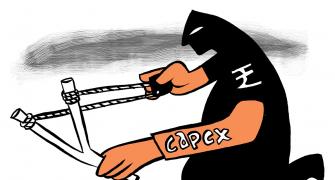The government has put forward a proposal to do away with the yearly fiscal deficit target from the next financial year (2010-11). Instead, it wants to fix the target as an average over an economic cycle of five to six years.
This will help counter-cyclical policy, is the thinking. "The proposal is to have an average fiscal deficit target of 3 per cent spread over an economic cycle of five-six years," said a senior finance ministry official. "This will help government spending exceed the target when the economy slows down."
Under the Fiscal Responsibility and Budget Management Act, the Centre should have eliminated the revenue deficit and brought down the fiscal deficit to 3 per cent of gross domestic product by March 2008. This target was extended by a year. Then, due to the global economic crisis, the government decided to suspend implementation of the FRBMA. As a result, the fiscal deficit for 2008-09 crossed 6 per cent of GDP and is projected at 5.5 per cent in fiscal 2009-10.
The Thirteenth Finance Commission has the task of charting a fresh plan for fiscal discipline starting from April 2010. The idea of an average fiscal deficit target over an economic cycle is being put to the commission, said the same official.
Though the concept of an economic cycle has not been defined in the Indian context, the last time Asia's third largest economy grew below 5 per cent was seven years earlier. In the past five years, the Indian economy grew at an average rate of 8.48 per cent, the slowest being 6.7 per cent registered in the just-ended financial year, 2008-09.
Under the FRBMA, both the Centre and the states together were allowed to have a combined fiscal deficit target of up to 6 per cent of GDP.
"There is a reason why this number was arrived at," said C Rangarajan, former governor of the Reserve Bank of India and a member of Parliament. In the Indian context, he said, only households are the source of savings and both corporates and government have negative savings.
"The household savings is estimated at 22 per cent of GDP and only half of it is invested in financial assets. So, it's important that government borrowing is limited to allow space for corporates," he added.







